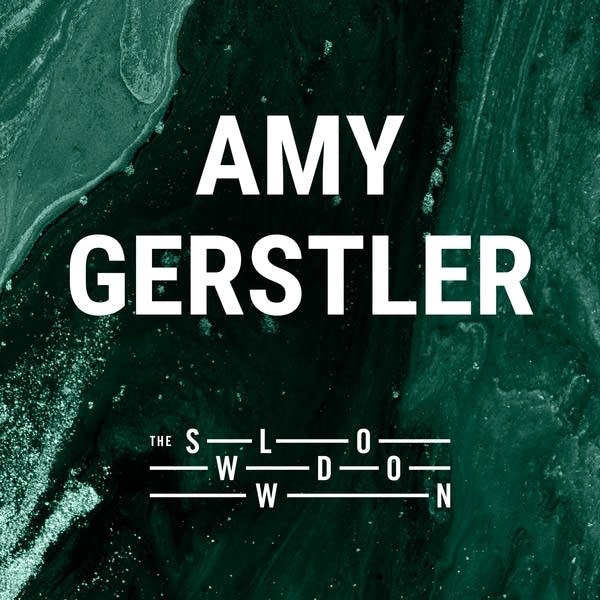1334: Étude by Amy Gerstler

1334: Étude by Amy Gerstler
Transcript
I’m Maggie Smith and this is The Slowdown.
It’s summer, and I can smell it in the air. One whiff of chlorine or sunscreen, and I’m carried back to the swimming pool of my childhood, and all of the sense memories that come with that: the paintbrush tip of the end of my wet ponytail, the hot pavement under my bare feet, the terry cloth towel wrapped around me. Other smells take me back in time, too: cut grass, campfire smoke, or Shalimar, my grandmother’s perfume.
Research has shown that our sense of smell—the olfactory sense—is the one most closely associated with memory. The olfactory bulb runs from the nose to the base of the brain and is directly connected to regions of the brain linked to memory and emotion. No wonder some smells can conjure memories instantaneously.
But what about sounds? Tires on a rainy street, ocean waves, even certain ringtones are like time machines, transporting me to other times and other places. Music itself is a time machine. The other day I heard a Donna Summer song and was immediately six years old again, dancing with my younger sisters in the family room of my childhood home, while that record spun on my parents’ turntable.
I’ve been a music lover all my life. In fact, listening to music was my gateway to writing poems. I started with my parents’ records, then my own cassettes and CDs. I used to listen to the same songs over and over, writing down the lyrics and thinking about what the images and metaphors meant to me.
Today’s poem is a celebration of sound, and also a celebration of our own power to interpret sound and make meaning—as poets do. Poems, like songs, are meant to live in the air. They are their own music.
Étude
by Amy Gerstler
As a child I loved air raid sirens and the blare of the “all clear.” The vacuum cleaner’s roar. The scrape of the dog’s teeth raking a bone. The rustle of mother’s skirt as she was leaving. All were melody to me. I wanted to test the outer limits of listening. But what could that mean? I took seriously the galaxies of static between radio stations, full of whispered transmissions from the living and the dead. I didn’t have to explain whether or not it was music. I just needed to get there. So I tried, constrained by physical limits, and the feeling, at times, of having failed at life and let others down. People try to deny their freedom. Freedom derived from emptiness and silence is most scary to me, but also most productive. In the no-man’s-land between noise and music, you can make sounds evolve by doing things you were told you couldn’t do. Some of it was worked out mathematically. When I read that giraffes hum to each other all night, I thought, That’s just one example. You can be the music’s protégé, make it echo in you. There wasn’t a mad scientist in sight, so I supposed I would have to do.
“Étude” by Amy Gerstler from IS THIS MY FINAL FORM? © 2025 Amy Gerstler. Used by permission of the poet.


